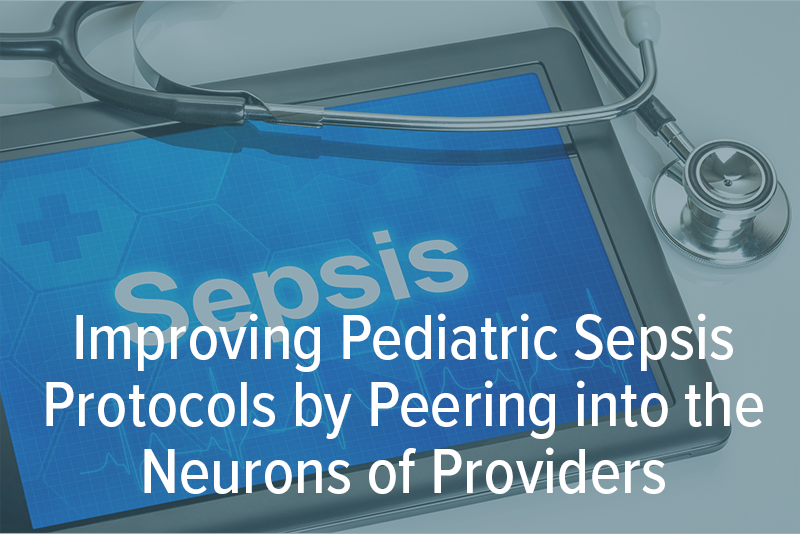
The Annals of Emergency Medicine recently published a paper entitled “Preliminary Performance on the New CMS Sepsis-1 National Quality Measure: Early Insights From the Emergency Quality Network (E-QUAL).” In the paper, the authors review the performance of hospitals against the CMS Severe Sepsis/Septic Shock Early Management Bundle (SEP-1) quality measure. Their conclusion is that “preliminary data on SEP-1 performance suggest wide hospital-level variation in performance, with modest improvement during the first year of data collection.”
Within that conclusion lies perhaps the greatest tension underlying the herculean efforts to make healthcare better, safer, and more affordable. This tension is whether patients get the right care, better care, and cheaper care if clinical decisions are codified, governed, or even digitized, according to evidence, best practice, and guidelines. Or, is the right care, better care, and cheaper care better off in the hands of physicians to use their knowledge, experience, and judgment, with evidence, best practice and guidelines only used as a reference?
Stated differently, it’s the ongoing ideological war over what some people call “Cookbook Medicine.” Those who govern healthcare want to create approved recipes for clinical care that doctors follow. The assumption is that those recipes are the best possible recipes and consistently result in the best results for most patients, regardless of who and where they are. With physicians, this assumption causes cognitive dissonance.
This dissonance starts, according to sepsis specialist Dan Davis, MD, Director of the Center for Resuscitation Science at the University of California, San Diego (UCSD), “When regulatory requirements parallel clinical guidelines that appear somewhat arbitrary and capricious. There is no better example than the sepsis guidelines, which have been inconsistent at best, and outright contradictory at worst. And yet they influence hospital performance metrics and reimbursement. Cognitive dissonance manifests quite impressively in the physician approach to mandatory education. Once the information is perceived as having regulatory (but not clinical) relevance, the approach becomes pragmatic, and the learned information is laid down with less permanence and without connection to clinical practice neural networks (which involve both right and left brain connections).”
The SEP-1 data, which drew from chart review at 50 emergency departments across the US, did not investigate sepsis outcomes; it measured compliance with the SEP-1 bundle. The fact that variation was wide and performance only modestly improved suggests that physicians and their hospitals:
- Don’t know the SEP-1 bundle
- Have difficulty interpreting and/or applying it
- Follow a different set of guidelines or practices
- Disagree with the evidence behind SEP-1
- And/or simply forgot to document or report their compliance
Sepsis has been around for a long time, as has the lack of agreed-upon knowledge about the best way to recognize and treat it. As physicians and standard-setters hold their ground, patients continue to suffer.
But there is hope.
The Amplifire Healthcare Alliance recently completed a national multi-site sepsis study involving 1,234 hospitalists, ER physicians, CCU physicians, and nurse practitioners across 23 hospitals and health systems. All study participants took the same accredited 30-minute sepsis course deployed on the Amplifire platform. The course included the most current evidence for diagnosing and treating sepsis and was vetted by the internal sepsis leaders at all 23 participating organizations.
While the findings of the Alliance study were startling — showing a great deal of confidently held misinformation and uncertainty among practicing clinicians about their understanding of the evidence for sepsis care—they were not surprising given the SEP-1 study findings. The Alliance study also revealed that Amplifire may represent a scalable way for hospital executives to reduce the cognitive dissonance physicians have toward sepsis (and other) evidence and guidelines, and thereby reduce clinical variation and increase guideline adherence.







